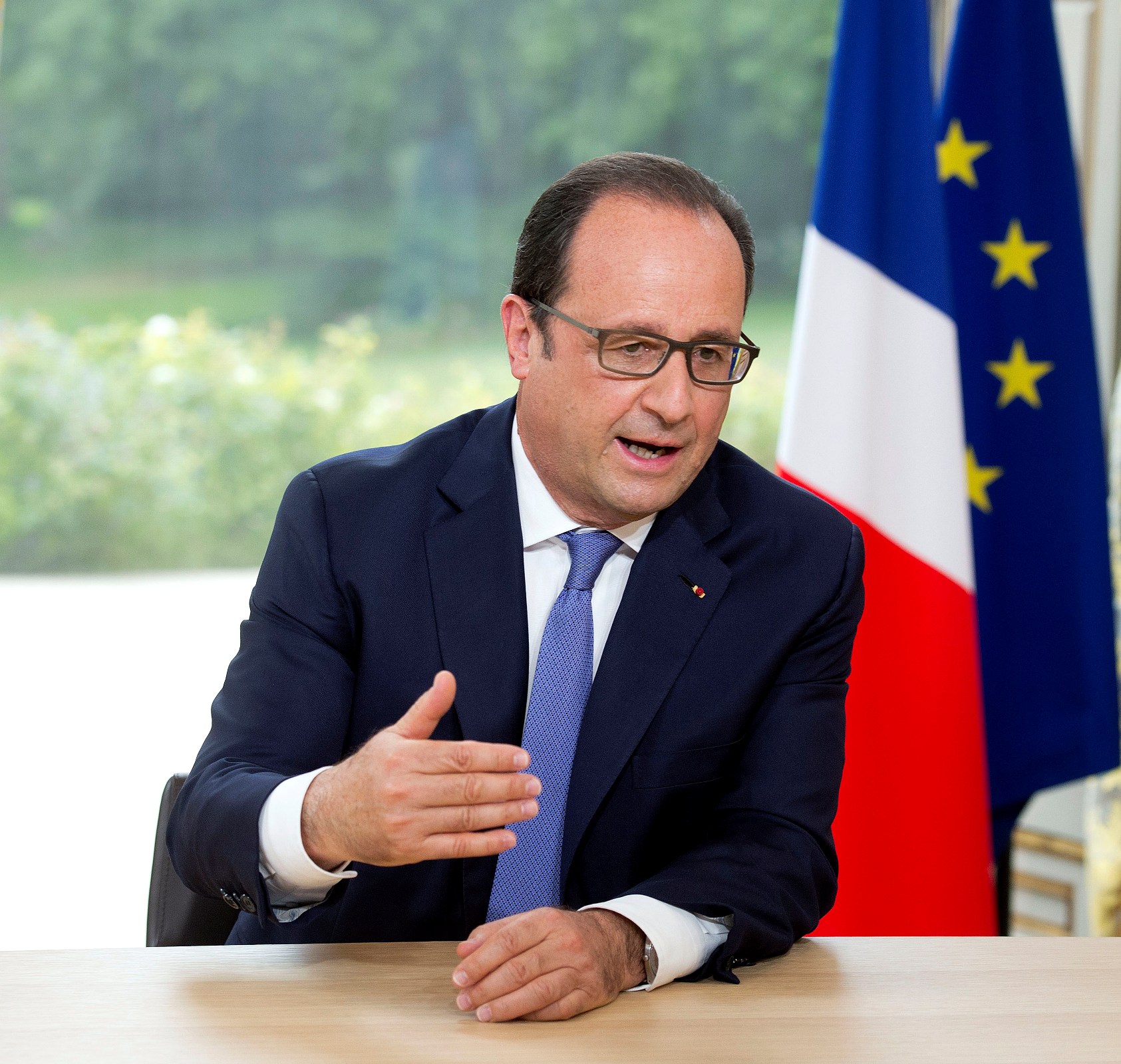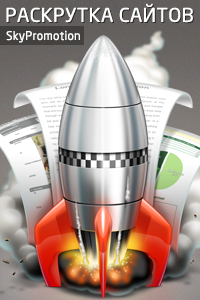Best President In The World 2021
This article is an overview of fourteen randomly selected former and current heads of state, country and republic.
The article turned out to be quite voluminous and for convenience use the chapter navigation below.
At the end of each description there is a link to return to the table of contents.
For Russian-speaking brothers
RUFor the Dutch brothers
NLRating of presidents of the world 2021
This article is an overview of fourteen randomly selected former, and current heads of state, country and republic.
The article turned out to be quite voluminous and for convenience use the chapter navigation below.
At the end of each description, there is a link to return to the table of contents.
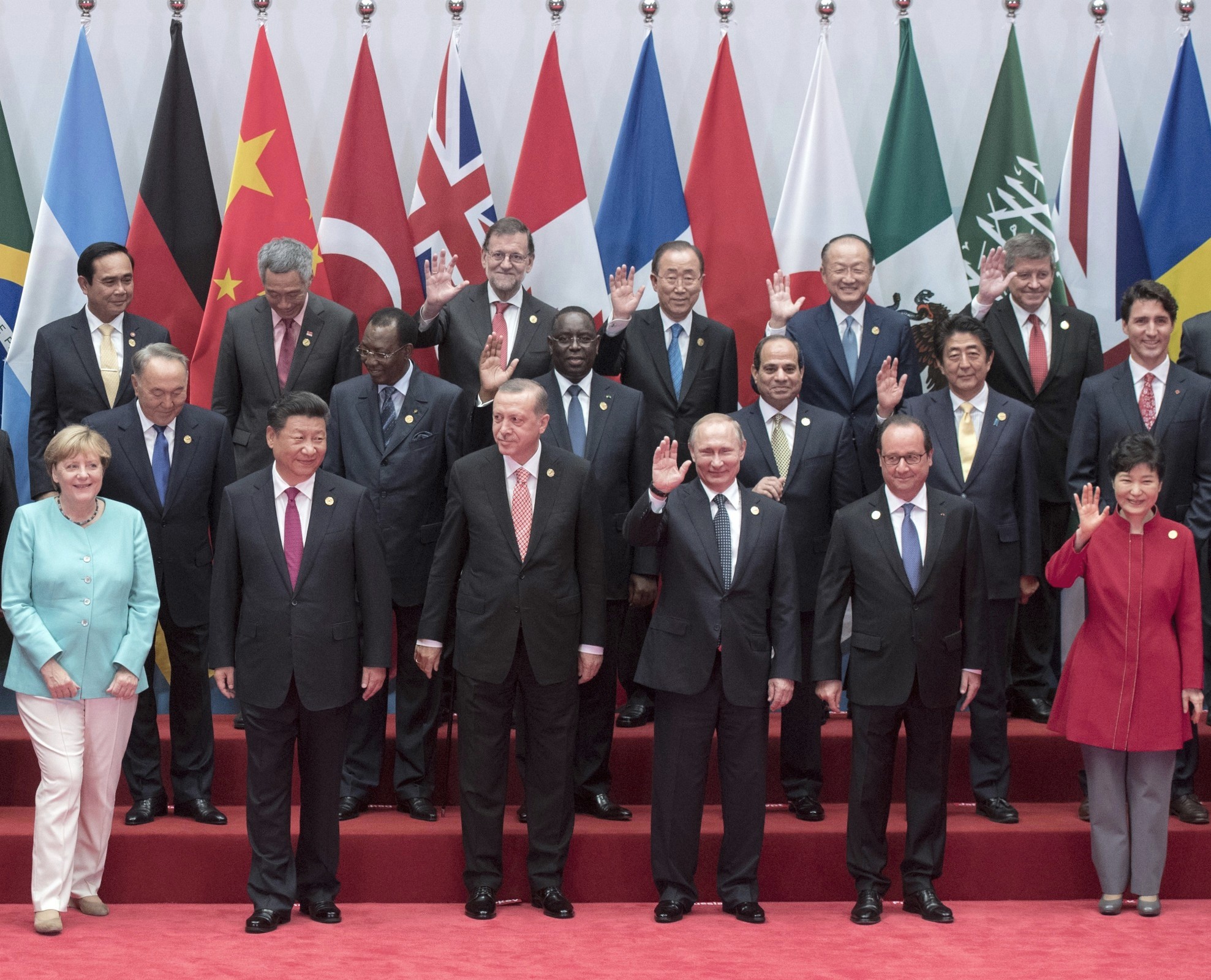
To begin with, let's get acquainted with several worthy leaders of countries, republics, and states that are worthy of the nomination "The best President in the World".
Of course, some no longer hold the positions of presidents, chancellors, and prime ministers.
Each of the leaders listed below has left their contribution contribution and mark in the development of the country, in the maintenance of law and order, and many other aspects of life.
Someone acted in the interests of the country and citizens, and someone in their interests.
Well, let's run through a small list?
Francois Hollande
François Hollande is a French statesman and politician, President of France from May 15, 2012, to May 14, 2017.
He began to engage in active political activity in the 1980s. During his reign, he became the most unpopular president of France in the first 100 days of his reign.
September 10, 2012, proposal to introduce a 75% tax on citizens with incomes over 1 million euros per year. The Constitutional Court rejected his initiative.
During his tenure as President of Hollande, the following happened:
- Approved the draft law on legalizing same-sex marriage and granting same-sex partners the right to adopt;
- Reforms labor laws and credit training programs;
- Withdrew the combat units that were present during the military intervention in Afghanistan;
- Concluded an EU directive on the protection of animals in laboratory research through a Franco-German contract;
- Terrorist attacks in Paris in January and November 2015 and attacks on a truck in Nice in 2016;
- Was a leading proponent of binding EU migrant quotas and NATO's military intervention in Libya in 2011;
- Has dispatched troops to Mali and the Central African Republic with the approval of the UN Security Council to stabilize the situation in these countries;
- France has become the most visited country in the world, and is known for open markets, efficient regulation, rule of law and limited government intervention;
- Made no small efforts to attract the 2024 Summer Olympics to Paris, which were crowned with success;
- Unemployment was 10%;
- There were serious internal problems due to terrorism.
He stated that the willingness to legalize same-sex marriage would be "a step forward for the whole society." This sparked massive protest demonstrations across France and backlash from the Catholic Church and the right-wing opposition.
Terrorism has caused him to experience spikes and dips in approval rates, ultimately making him the most unpopular head of the country.
In conclusion, the following can be said about Hollande.
The only good thing Hollande did was:
Film Withdrawal of Troops from Afghanistan;
Made the country more visited;
Reform in labor legislation and credit training programs.
Not a lot!
One thing is clear from all this: "For the sake of his victory in the presidential elections, he is ready to kick any gay man's ass and kiss her."
To the table of contents
Recep Tayyip Erdogan
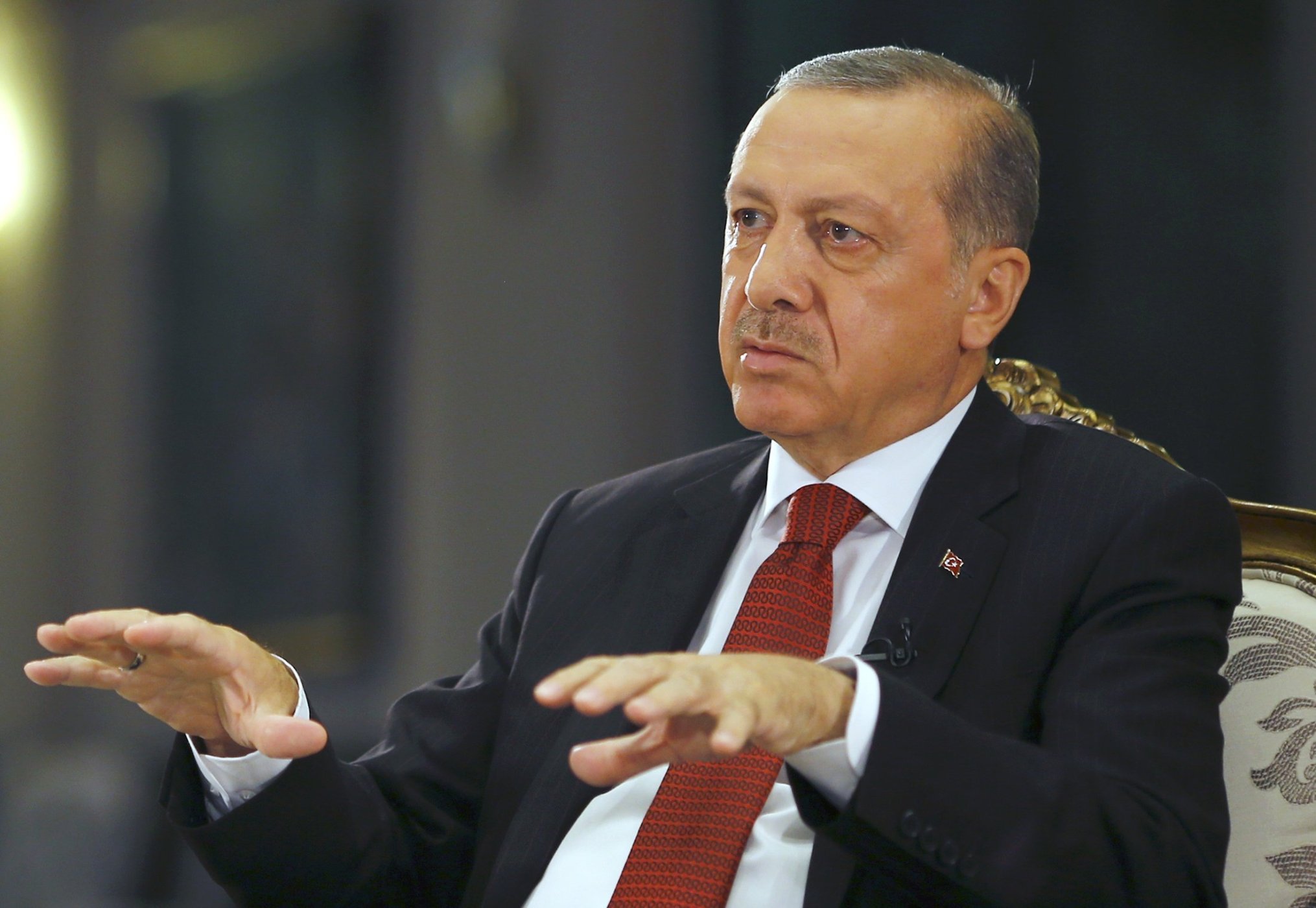
Recep Tayyip Erdogan is a Turkish politician serving as the current president of Turkey.
He was the mayor of Istanbul from 1994 to 1998.
Served as Prime Minister of Turkey from 2003 to 2014.
Founded the Justice and Development Party (AKP) in 2001, leading it to electoral victories in 2002, 2007, and 2011.
Coming from an Islamist political milieu and calling himself a conservative democrat, he promoted socially conservative and populist policies during his administration.
Was stripped of his post, Mayor of Istanbul, and suspended from political activities, and imprisoned for four months for inciting religious hatred for reading a poem by Zia Hekalp.
Erdogan subsequently abandoned openly Islamist politics, founding the moderately conservative AKP in 2001, which he led to a landslide victory in 2002.
AKP co-founder Abdullah Gul became prime minister and later lifted Erdogan's political ban.
In 2003, Erdogan replaced Gul as prime minister, and Gul instead became the AKP's candidate for president.
Erdogan's early years as prime minister saw progress in Turkey's accession negotiations to the European Union, economic recovery after the financial collapse in 2001, and investment in infrastructure, including roads, airports, and high-speed trains.
In late 2012, his government began peace talks with the Kurdistan Workers' Party (PKK) to end the Kurdish-Turkish conflict, which lasted from 1978 to the present. The ceasefire was broken in 2015, leading to a renewed escalation of the conflict.
Erdogan's foreign policy has been described as neo-Ottoman and led to Turkey's involvement in the Syrian civil war, focusing on preventing the Syrian democratic forces from gaining a foothold on the Syrian-Turkish border during the Syrian civil war.
In the last years of Erdogan's rule, Turkey has experienced a democratic setback and corruption.
Since the anti-government protests in 2013, his government has imposed increasing censorship on the press and social media, restricting access to sites such as YouTube, Twitter, and Wikipedia.
This has stalled negotiations related to Turkey's EU membership.
A $ 100 billion corruption scandal in 2013 led to the arrests and charges of Erdogan's close allies.
After the deterioration of relations with Gulen, Erdogan began to purge his supporters from judicial, bureaucratic, and military positions.
A failed military coup attempt in July 2016 led to further purges and a state of emergency.
A longtime advocate of turning Turkey's parliamentary system of government into an executive presidency, Erdogan allied with the far-right Nationalist Movement Party (MHP) to create an executive presidency in 2017, where the changes were adopted in a constitutional referendum.
The new system of government officially took effect after the 2018 general elections, in which Erdogan and the new AKP-MHP popular alliance were re-elected.
Erdogan has also been accused of facilitating the 2018 Turkish currency and debt crisis, which caused a significant decline in his popularity and is believed to have contributed to the results of the 2019 local elections, in which the ruling party lost control of Ankara for the first time in 15 years and Istanbul.
After losing, the Turkish government ordered re-election in Istanbul, in which the ruling party again lost the elections by an even wider margin. These two consecutive losses were considered significant defeats for Erdogan, who once said that "if his party loses Istanbul, we will lose Turkey."
In July 2020, Erdogan ordered the reclassification of Hagia Sophia into a mosque. The name change was controversial, prompting condemnation from the Turkish opposition, UNESCO, the World Council of Churches, and many international leaders.
The only neighbor of Turkey, which Erdogan did not visit during his presidency, is Armenia.
The Turkish-Armenian border has been closed since 1993 due to the Nagorno-Karabakh conflict with Turkey's close ally, Azerbaijan.
Erdogan and in the new Nagorno-Karabakh conflict, which occurred at the end of 2020, helped Azeibarjan with military assistance against Armenia.
In conclusion, we can say the following about Erdogan.
The only good thing Erdogan did was:
In principle, he did not do anything well, and even if he did, history is silent about it.
Film He is corrupt, Islamist, and extremist.
And he will always be against Orthodoxy, which came to Russia from Byzantium, namely from Constantinople, present-day Istanbul.
Not a lot!
One thing is clear from all this: "Striving for the EU and NATO, Erdogan kissed all the bourgeois asses."
To the table of contents
Shinzo Abe
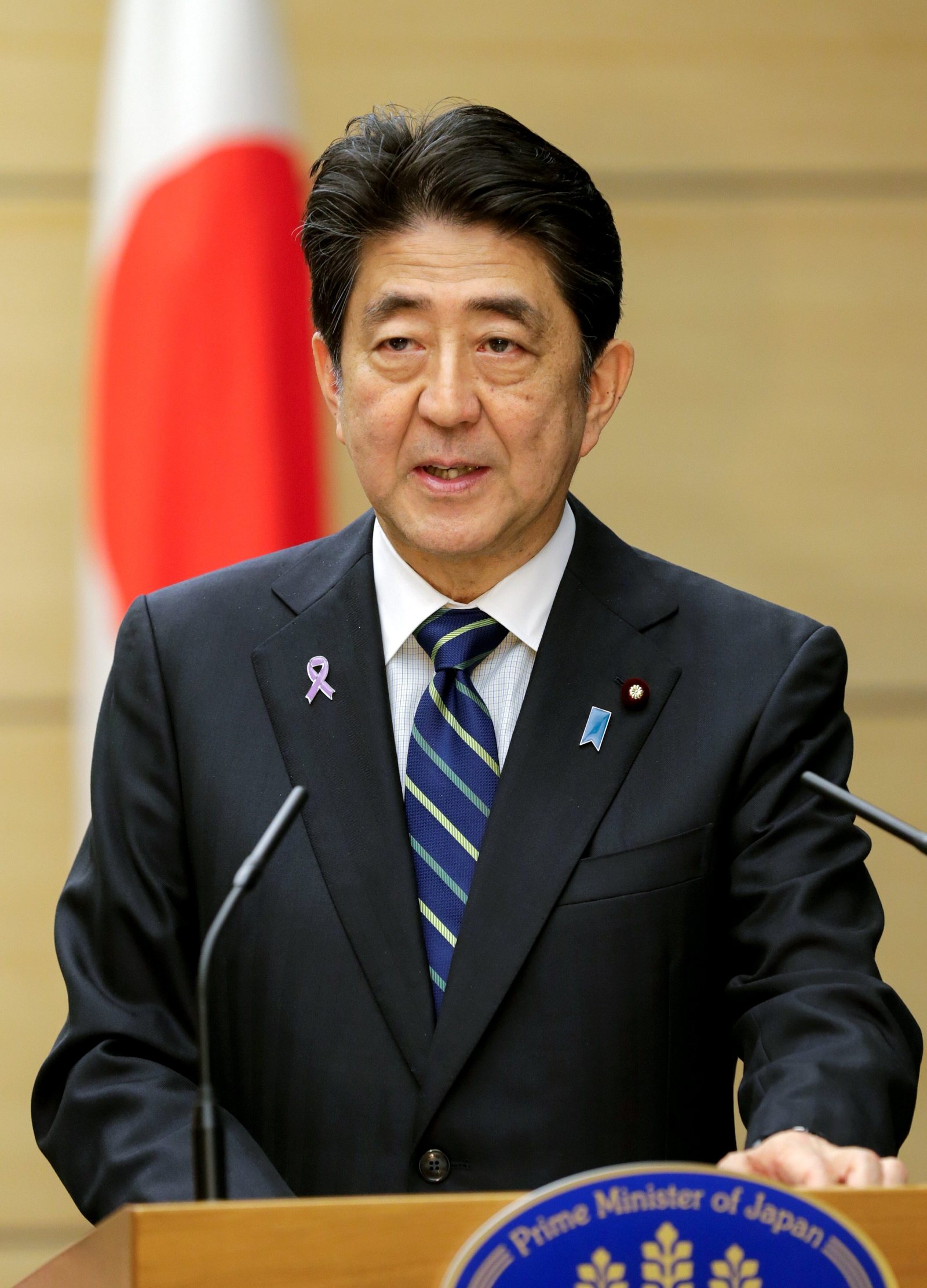
Shinzo Abe is a Japanese politician who served as Prime Minister of Japan and President of the Liberal Democratic Party (LDP) from 2006 to 2007 and again from 2012 to 2020.
He is the longest-serving prime minister in Japanese history. Abe also served as chief secretary of the cabinet from 2005 to 2006 and briefly was the leader of the opposition in 2012.
At the age of 52, Abe is Japan's youngest post-war prime minister and the first to be born after World War II.
Abe resigned as prime minister after one year in office, citing medical complications from ulcerative colitis, shortly after his party lost elections to the House of Councilors.
He was replaced by Yasuo Fukuda, who became the first in a line of five prime ministers, each of whom could not hold office for more than sixteen months.
Recovering from his illness, Abe staged a surprise political comeback by defeating former Defense Minister Shigeru Ishiba in a vote to become LDP president for the second time in September 2012.
After a landslide victory of the LDP in the general elections in December of the same year, he became the first former prime minister to return to office after Shigeru Yoshida in 1948.
In August 2020, Abe announced his second resignation as prime minister, citing a significant resurgence of his ulcerative colitis. He resigned on September 16, after the Seimas elected Chief Cabinet Secretary, Yoshihide Suga, as its successor.
Abe is a conservative who has been widely described by political commentators as a right-wing nationalist. He is a member of Nippon Kaigi and holds negative views on Japanese history, including denial of the role of state coercion in recruiting comfort women during World War II, which has created tensions with neighboring South Korea.
He is considered a hardliner on North Korea and is in favor of revising Article 9 of the pacifist constitution to allow Japan to maintain a military.
Prime Minister Abe was known worldwide for his government's economic policies, nicknamed "Abenomics," which pursued monetary easing, fiscal stimulus, and structural reforms.
In conclusion, the following can be said about Abe.
The only good thing Erdogan did was:
Easing Monetary Policy, Fiscal Incentives, and Structural Reforms.
Film He is a Liberal Democrat and a Conservative. There is nothing more to say about him.
The same, not a lot!
One thing is clear from all this: "He was striving for one thing - to squeeze the Kuriles from Russia."
To the table of contents
Theresa May
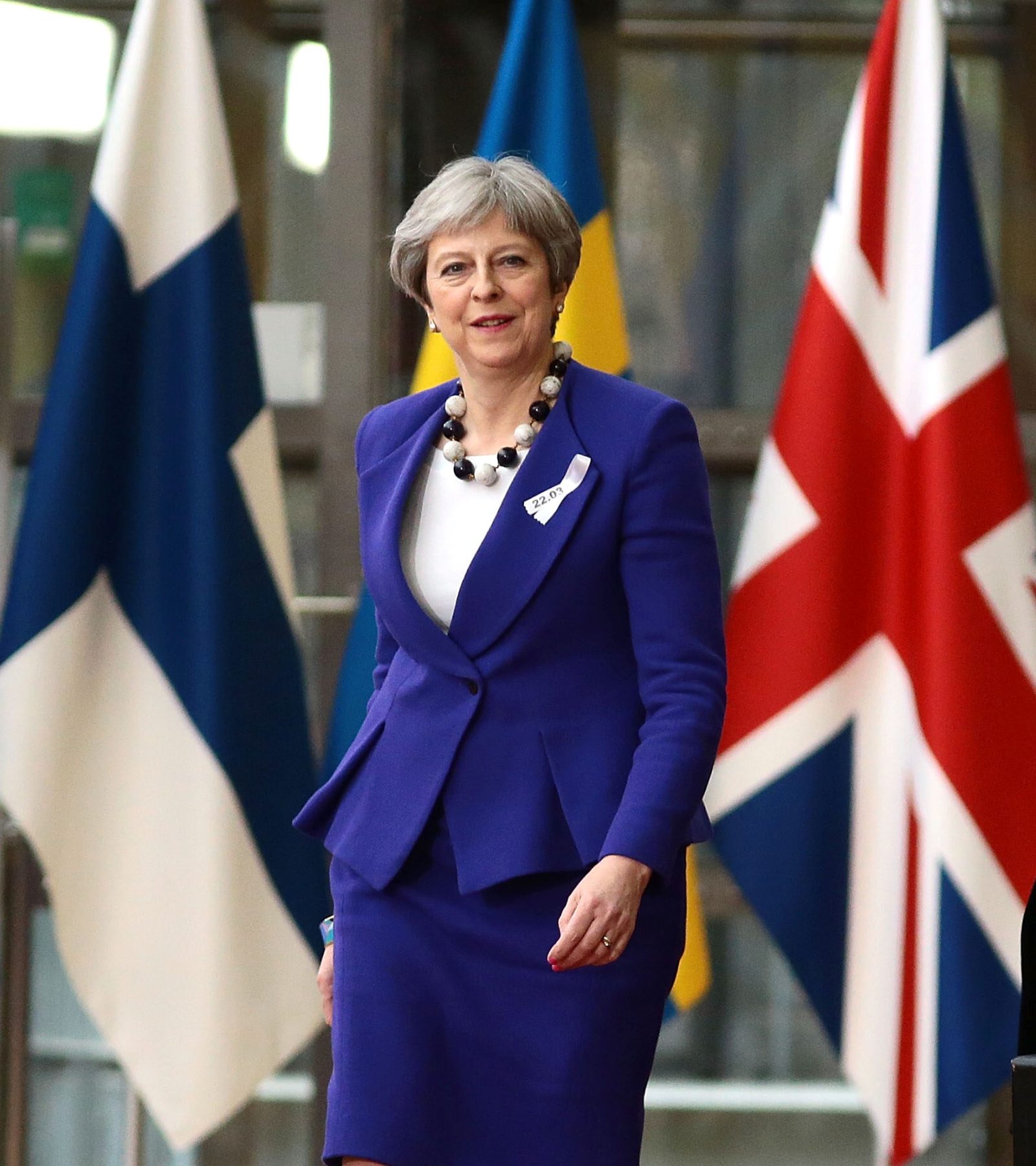
Theresa May is a British politician who served as Prime Minister of the United Kingdom and leader of the Conservative Party from 2016 to 2019.
May served as Home Secretary from 2010 to 2016 in Cameron's government and has been the Maidenhead MP in Berkshire since 1997. Ideologically, she identifies herself as a conservative of one nation.
She also served as a counselor at Dearnsford in Merton, and after two failed attempts to be elected to the House of Commons, she was elected Maidenhead MP in 1997.
From 1999 to 2010, May held several positions in shadow offices and was chairman of the Conservative Party from 2002 to 2003.
Following the formation of a coalition government following the 2010 general elections, Mei was named Home Secretary and Minister for Women and Equality but resigned in 2012.
Reappointed following the success of the Conservatives in the 2015 general election, she has become the longest-serving Home Secretary in 60 years.
During her tenure, she reformed the police federation, pursued tougher drug policies, including a hut ban, and imposed additional restrictions on immigration.
She also oversaw the introduction of elected police officers and crime commissioners, the deportation of Abu Qatada, and the creation of the National Anti-Crime Agency.
In July 2016, after the resignation of David Cameron, May was elected leader of the Conservative Party and became the second female prime minister of Great Britain after Margaret Thatcher.
May survived a vote of no confidence from Conservative MPs in December 2018 and a vote of no confidence from opposition leader Jeremy Corbin in January 2019.
During Theresa May's tenure as prime minister, the following happened:
- She is the first and so far the only woman to hold two Important Government posts;
- She began the UK's exit process from the European Union by launching Article 50 in March 2017;
- Announced early general elections to strengthen its hand in the Brexit negotiations and highlight its strong and stable leadership;
- She negotiated Brexit with the European Union, adhering to the Checkers Agreement, which led to the exit from Brexit;
- Overseen a £ 20 billion increase in funding for the NHS Long Term Plan;
- Conducted the first-ever audit of racial inequality;
- Launched a 25-year environmental plan that amended the 2008 Climate Change Act to end the UK's contribution to global warming by 2050;
- Unemployment in the United Kingdom fell to an all-time low, the lowest unemployment rate since 1975.
- There were serious internal problems due to terrorism.
After being rejected by parliament three times on her draft withdrawal agreement, she resigned and was succeeded by Boris Johnson, her former foreign minister.
She remains in the House of Commons as a protector.
In conclusion, the following can be said about May.
Theresa May has made the country a little better, although it already occupies a high position.
She is better than the previous three!
From all this, one thing is clear: "She strove to improve things in the country. Something worked out, but some didn't."
To the table of contents
Jacob Zuma
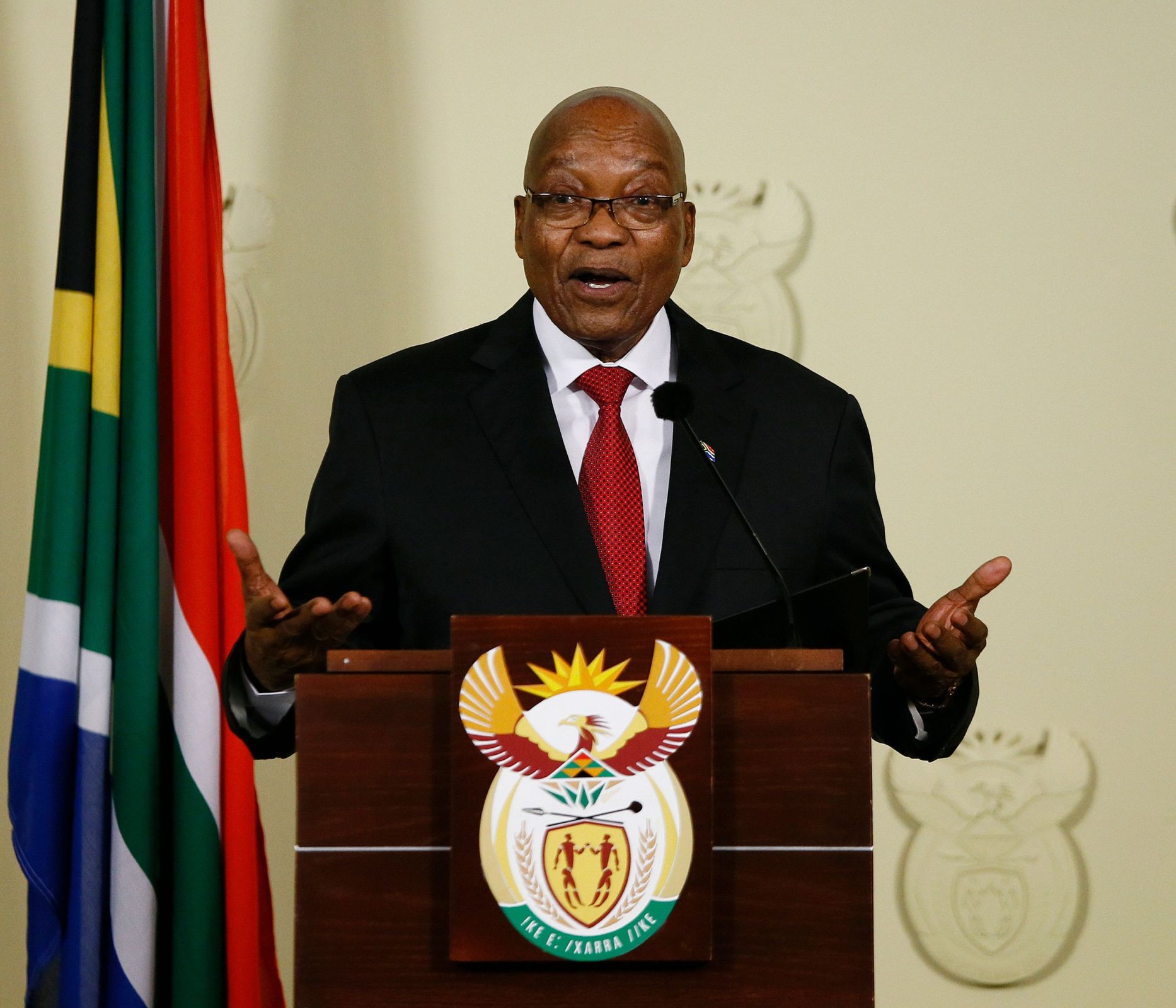
Jacob Zuma is a South African politician who served as the fourth democratically elected President of South Africa from the 2009 general election until his resignation on February 14, 2018.
Zuma served as Deputy President of South Africa from 1999 to 2005 but was fired by President Thabo Mbeki in 2005 after Zuma's financial advisor Shabir Shaik was convicted of extorting bribes.
Zuma was elected President of the African National Congress (ANC) on December 18, 2007, after defeating Mbeki at the ANC conference in Polokwane.
Zuma led the ANC to victory in the 2009 general election and was elected President of South Africa.
He was re-elected as ANC leader at the ANC conference in Mangaung on December 18, 2012, defeating challenger Kgalema Motlanthe by an overwhelming majority, and remained president of South Africa after the 2014 general elections, although his party suffered from declining support, in part from - for the growing discontent with Zuma as president.
Zuma faced significant legal challenges before and during his presidency. In 2005, he was charged with rape, but was acquitted.
He has fought a lengthy legal battle over racketeering and corruption charges stemming from the conviction of his financial advisor, Shabir Shayk, of corruption and fraud.
Following an extensive government-funded modernization of his farmhouse in Nkandla, the Public Defender discovered that Zuma had improperly benefited from these costs.
The Constitutional Court unanimously ruled in 2016 that Zuma was unable to uphold the country's constitution, leading to calls for his resignation and an unsuccessful attempt at impeachment in the national assembly.
Zuma's reign is estimated to have cost the South African economy 1 trillion reais (approximately US $ 83 billion).
He has also been implicated in reports of a state takeover thanks to his friendship with the influential Gupta family. He has experienced many statements of distrust, both in parliament and in the ANC.
In the months that followed, more pressure was exerted on Zuma to step down as President of South Africa, which led to him being removed from the post of President of South Africa by the ANC.
Faced with a motion of no confidence in parliament, Zuma announced his resignation on February 14, 2018, and was replaced the next day by Cyril Ramaphosa.
In October 2019, Ramaphosa said that corruption under Zuma cost South Africa more than 500 billion rubles.
In conclusion, the following can be said about Zoom.
Jacob Zuma did not give anything good to his country.
One thing is clear from all this: "He was a corrupt official, a thief, and a dictator."
To the table of contents
Barack Hussein Obama
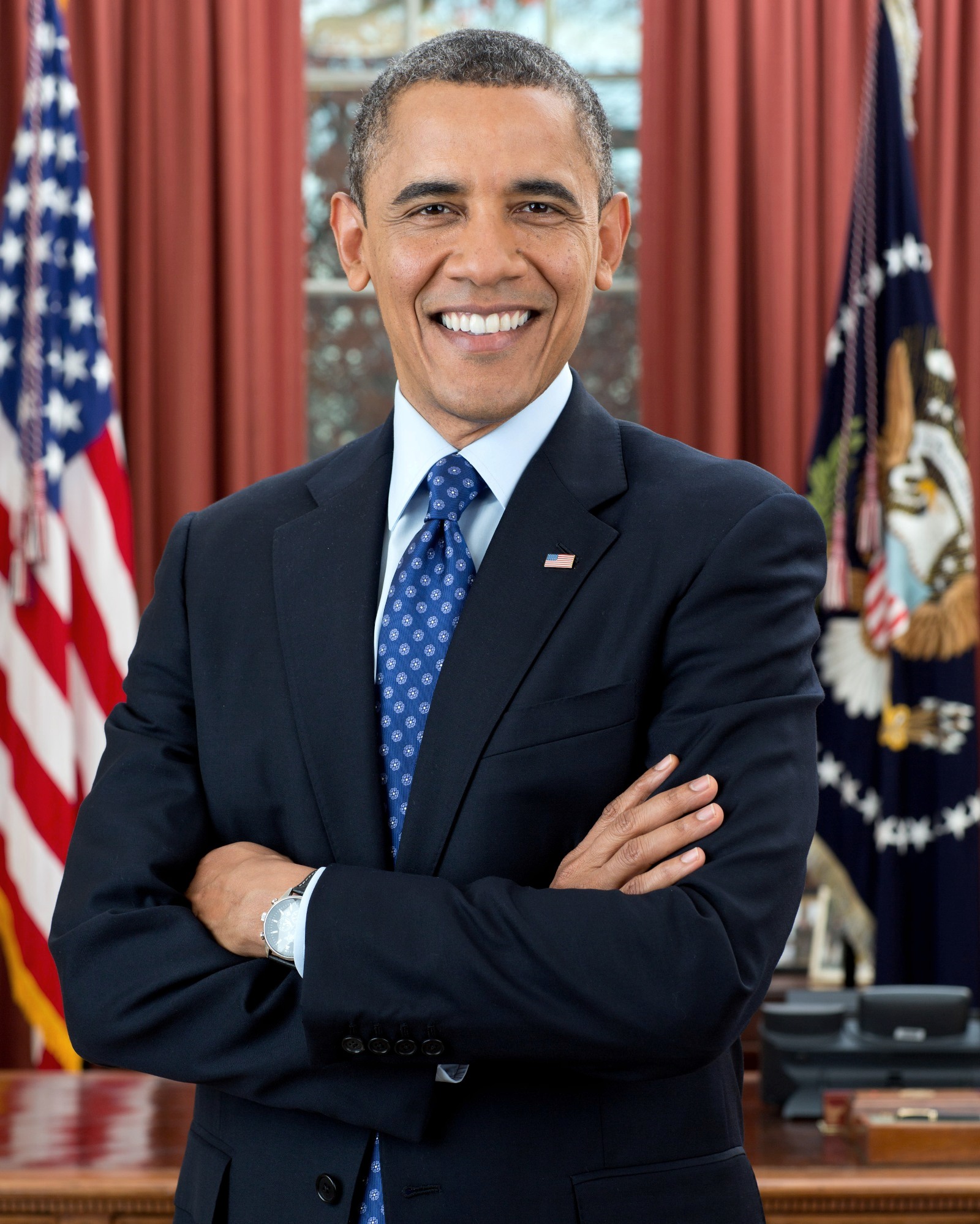
Barack Hussein Obama is an American politician and lawyer who served as the 44th President of the United States from 2009 to 2017.
Previously, he was the US Senator from Illinois from 2005 to 2008.
In 2008, he was nominated by the Democratic Party for president a year after the start of his presidential campaign.
At the end of 2009, he was named the 2009 Nobel Peace Prize Laureate.
During his first two years in office, Obama signed many landmark bills.
Major reforms that have been passed include the Affordable Care Act (commonly referred to as the ACA or "Obamacare"), albeit without the option of public health insurance, the Dodd-Frank Wall Street Reform and Consumer Protection Act, and the law repealing the 2010 "Don't ask, don't tell" law.
The US Recovery and Reinvestment Act of 2009 and the Tax Credit, Re-Authorization of Unemployment Insurance, and Job Creation Act of 2010 served as an economic stimulus during the great recession.
After a lengthy debate over the national debt limit, he signed into law the Fiscal Control Act and the American Taxpayer Assistance Act.
In foreign policy, he increased the number of US troops in Afghanistan, reduced nuclear following the new START treaty between the US and Russia, and ended military participation in the war in Iraq.
He gave the order for military participation in Libya to implement the UN Security Council resolution 1973, contributing to the overthrow of Muammar Gaddafi.
He also ordered military operations that killed Osama bin Laden and alleged Yemeni al-Qaeda operative Anwar al-Awlaki.
After winning re-election by defeating Republican rival Mitt Romney, Obama was sworn in for a second term in 2013.
During this time, he promoted inclusiveness for LGBT Americans. His administration filed memos urging the Supreme Court to overturn bans on same-sex marriage as unconstitutional (the United States v. Windsor and Obergefell v. Hodges).
Same-sex marriage was legalized nationwide in 2015 after the Court ruled in Obergefell.
He has advocated gun control in response to the Sandy Hook Elementary School shooting, pointing out the support for an assault weapon ban, and has issued a wide range of executive measures regarding global warming and immigration.
He ordered military intervention in Iraq in response to the gains made by ISIS since the 2011 withdrawal from Iraq.
Continued the process of ending the US hostilities in Afghanistan in 2016.
Initiated sanctions against Russia.
Mediated the JCPOA nuclear deal with Iran and normalized US relations with Cuba.
Obama left office in January 2017 and continues to reside in Washington DC.
During Obama's tenure, the reputation of the United States abroad, as well as the American economy, has improved significantly.
Obama's presidency was generally well-received, and his presidency among historians, political scientists, and the general public often place him in the upper echelon of American presidents.
In conclusion, we can say the following about Obama.
Barack Obama poked his nose everywhere, even where the dog does not put his h ..., well, you understand what is under the dots.
Film He undoubtedly raised the country's economy. Perhaps ordinary citizens have a better life.
One thing is clear from all this: "Improved the economy; spent many military campaigns, where there were many blunders; applied sanctions against Russia. He's a fucking Russophobe."
To the table of contents
Dilma Rousseff
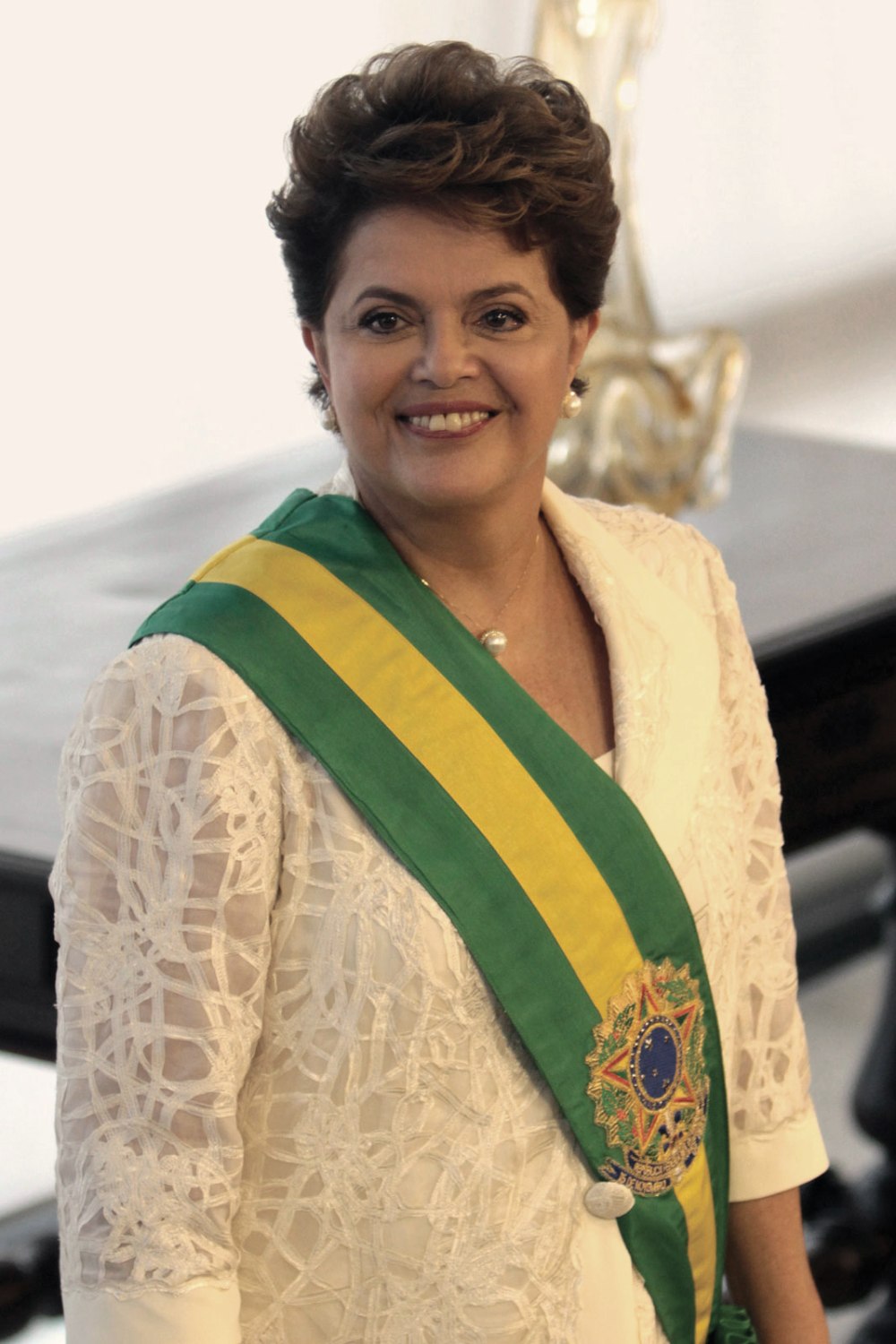
Dilma Rousseff is a Brazilian economist and politician who became the 36th President of Brazil, holding office from 2011 until she was impeached by her removal from office on August 31, 2016.
She became the first woman to hold the post of President of Brazil, and previously served as Chief of Staff of ex-President Luis Inacio Lula da Silva from 2005 to 2010.
Was elected in the second round on October 31, 2010, defeating the Brazilian Social Democratic Party (PSDB) candidate Jose Serra.
Impeachment proceedings against Rousseff began on December 3, 2015. On May 12, 2016, the Brazilian Senate suspended the powers and duties of President Rousseff for up to six months or until the Senate decides whether to remove her from office or acquit her.
On August 31, 2016, the Senate voted 61-20 to impeach, finding Rousseff guilty of violating budget laws and removing her from office.
On August 5, 2018, the PT formally nominated Rousseff for the seat in the Federal Senate from the state of Minas Gerais. Despite leading the polls ahead of the election, Rousseff finished fourth in the final vote and was defeated in the Senate elections.
In conclusion, the following can be said about Rousseff.
She did nothing for her country, although she did not occupy the lowest positions in the "rating of the happiest countries."
One thing is clear from all this: "That nothing is clear, exactly as with our Medvedev -" You are holding on, but there is no money.
To the table of contents
Nursultan Nazarbaev
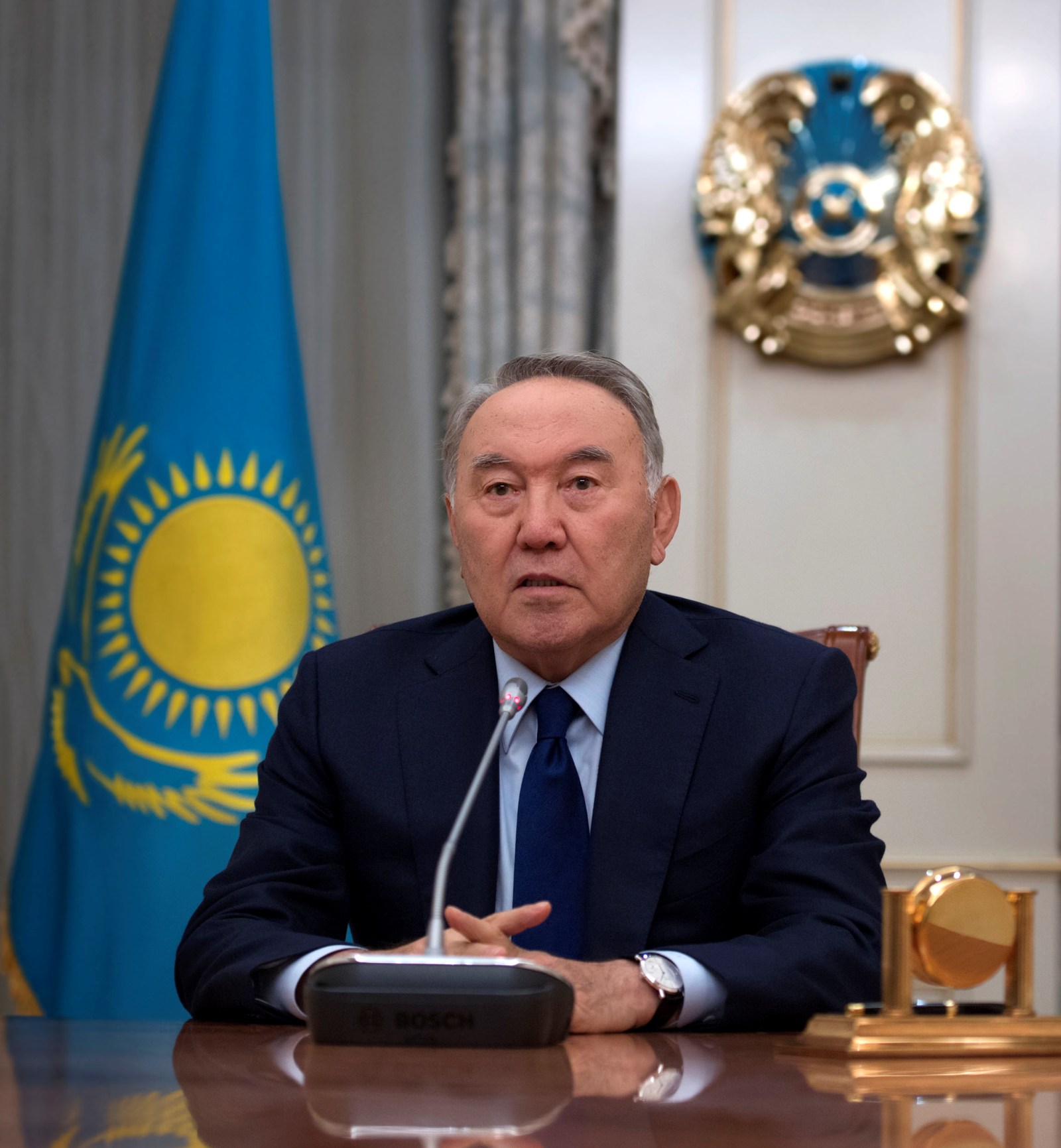
Nursultan Nazarbayev is a Kazakh politician, currently the chairman of the Security Council of Kazakhstan, who previously served as the first President of the Republic of Kazakhstan, in office from April 24, 1990, until his formal resignation on March 19, 2019.
He is one of the oldest reigning non-royal leaders in the world, where he has ruled Kazakhstan for nearly three decades. He bears the title of Elbasy (which means "Leader of the Nation").
According to some reports, it is known that Nazarbayev ruled a dictatorship in Kazakhstan. He was accused of human rights violations by several human rights organizations, suppressed dissent, and led an authoritarian regime.
According to independent observers from the Organization for Security and Cooperation in Europe, not a single election held in Kazakhstan since independence has been free and fair by international standards.
In 2010, he announced reforms to promote a multi-party system. This led to the re-establishment of various parties in parliament following the 2012 parliamentary elections, albeit with little influence and opposition, as parties supported and voted alongside the government, while Nur Otan still had dominant party control over the Majilis.
In January 2017, Nazarbayev proposed constitutional reforms that would delegate authority to the Parliament of Kazakhstan.
In May 2018, Parliament approved a constitutional amendment allowing Nazarbayev to serve as chairman of the Security Council for life.
In March 2019, he stepped down from the presidency under public pressure and was replaced by Kasim-Zhomart Tokayev, a close ally of Nazarbayev, who won the next early presidential election in June 2019 by an overwhelming majority.
He is protected from any criminal prosecution and is currently the chairman of the Security Council, the ruling Nur Otan party, and the Assembly of the People of Kazakhstan. Nazarbayev is also a member of the Constitutional Council and an honorary member of the Senate of the Parliament of Kazakhstan.
In conclusion, we can say the following about Nazarbayev.
Film For the country, except for dictatorship and corruption, it has brought nothing.
One thing is clear from all this: "A corrupt dictator, but the city of Astana was renamed in his honor."
To the table of contents
Alexander Lukashenko
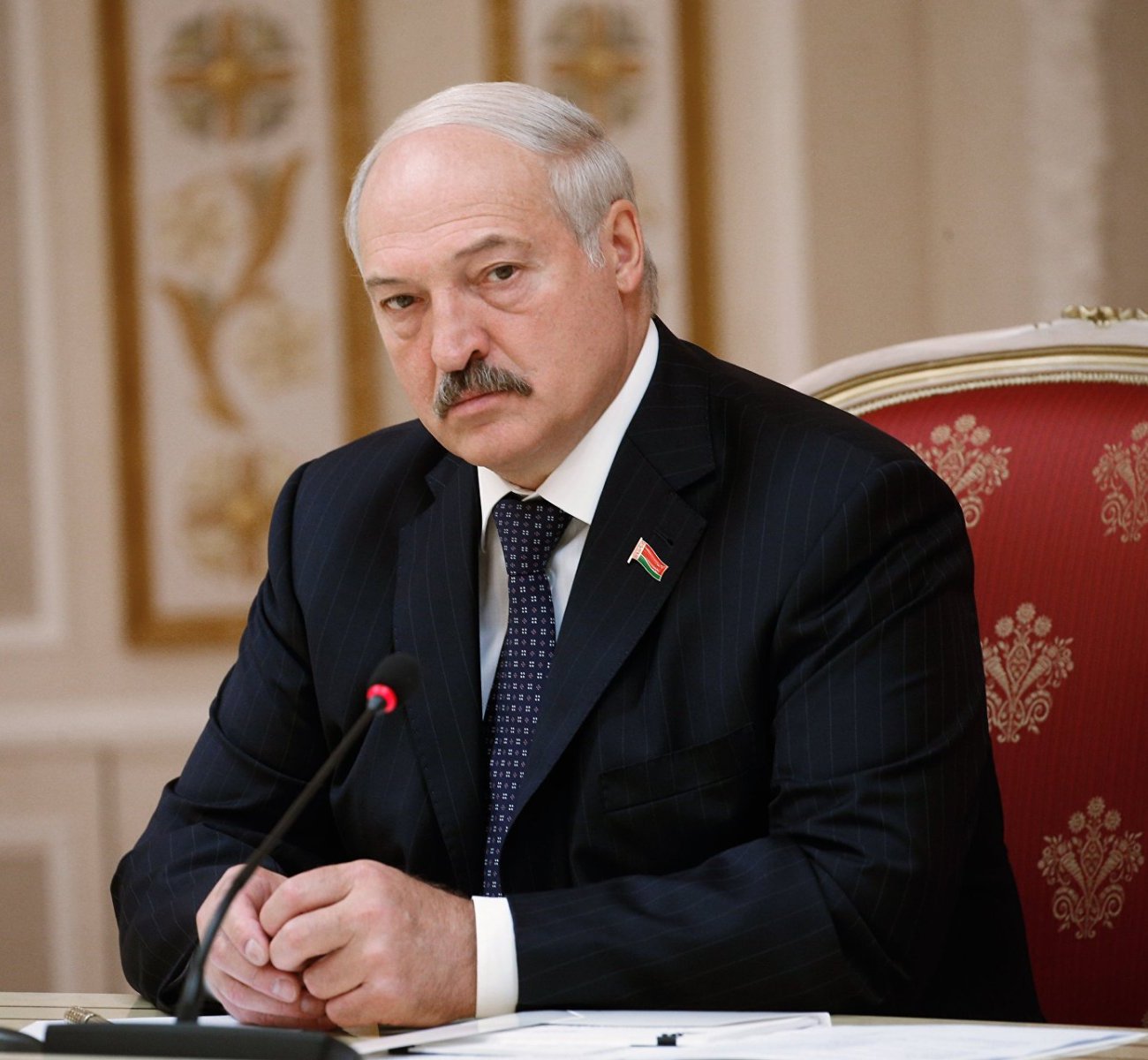
Aleksandr Loekasjenko is een Wit-Russische politicus die de eerste en enige president van Wit-Rusland was sinds de oprichting op 20 juli 1994.
Before his political career, Lukashenko worked as a director of a state farm, served in the Soviet Border Troops and in the Soviet Army.
Lukashenko retained state ownership of key industries in Belarus after the collapse of the Soviet Union and retained important symbols of the Soviet era, which can be seen in the coat of arms and state flag of Belarus adopted after the controversial 1995 referendum, which were based on the symbols of the Belarusian SSR ...
After the same referendum, Lukashenko gained more power, having received permission to dissolve the Supreme Soviet of Belarus, the Russian language was given the same status as the Belarusian language, and economic ties with Russia were strengthened, which, moreover, led to the creation of the Union a state with Russia, which allows Belarusians to freely travel to Russia, work and study, and vice versa. However, relations with Russia did not always go smoothly under him, as, for example, during the Milk Wars .
Lukashenka heads an authoritarian government, and the media often call HIM "the last dictator in Europe." International observers do not consider the elections free and fair, opponents of the regime are repressed, and the media are not free, which leads to the imposition of sanctions against Lukashenka and other Belarusian officials.
His government's fight against the COVID-19 pandemic in Belarus has led to widespread public discontent with his administration.
The controversial 2020 presidential elections in Belarus have led to widespread accusations of vote rigging, which greatly intensified anti-government protests, where Lukashenka faced unprecedented opposition to his rule.
Protesters faced brutal persecution by the authorities. A September 1 statement by the United Nations Office for Human Rights highlighted more than 450 documented cases of torture and ill-treatment of detainees, as well as reports of sexual abuse and rape.
After the contested elections, Lukashenko is not recognized by the European Union and the United States as the legitimate president of Belarus.
Advantages and disadvantages of Lukashenko's rule
What Lukashenka inherited:
- Production decline - 40% and shutdown of many enterprises in the country;
- Inflation - 1700%;
- Unemployment - 8.5%;
- The collapse of economic ties with Russia and other former republics of the USSR.
Lukashenka then said:
"We are standing over the abyss of a systemic crisis of the state. Even after the Great Patriotic War, this did not happen."
What did Lukashenka promise and what did he accomplish?
He promised to renew the government and outlined three main tasks.
1. Stop the rise in prices and the impoverishment of the population, the movement of society from the abyss of collapse and social explosion to stability and progress;
2. Fight against corruption, defeat of mafia structures ruling in the state;
3. Restoring, on an equal and mutually beneficial basis, ineptly destroyed ties with the states that were previously part of the USSR, primarily with Russia and Ukraine.
Lukashenka coped with the rise in prices. Although not immediately. Inflation in Belarus in 1994, when Lukashenko took office, was already at an astronomical height of 1960%. And by January 2019, the inflation rate in Belarus was almost 6%.
Unemployment in Belarus, during the first presidential term of Lukashenka, beat all records. In 1994, it was almost 13%. Moreover, since the collapse of the USSR in 1991, it has grown from 0.6%.
The peak of unemployment in Belarus was in 1996 - 24.4%. This means that every fourth Belarusian was unemployed.
From 2009 to 2021, it is in the region of 6%. At the end of last year - 5.71%, practically the same as in Russia.
Lukashenka has never stopped fighting corruption and this is his favorite point of the electoral program. Most of all corruption is where there are intermediary schemes for the sale of goods, Lukashenko said.
Lukashenka said about this:
"Why do people go to a pre-trial detention center, and then to jail. And above all, officials? All are tied up with intermediary schemes."
In August 2018, another "shaking up of the Cabinet" took place. The President dismissed the ministers of the economic bloc and a number of other officials.
He dismissed the Minister of Health for the fact that there are continuous kickbacks in this area: "A corrupt official sits on a corrupt official and drives a corrupt official," Lukashenko said.
And the president said to the Minister of Industry Vitaly Vovk: "You have only one choice: either prison, or here (to the Orsha Instrumental Plant)".
Lukashenka promised to fight corruption and is still fighting, which turns out to be pretty good.
Film He fulfilled all his promises.
In conclusion, we can say the following about Lukashenka.
For the country, he did a lot.
One thing is clear from all this: "Although the EU considers him to be the last and still acting dictator, he toughly controls corruption and does everything possible to stabilize the country. But Belarus will disappear without Russia!".
To the table of contents
Angela Merkel
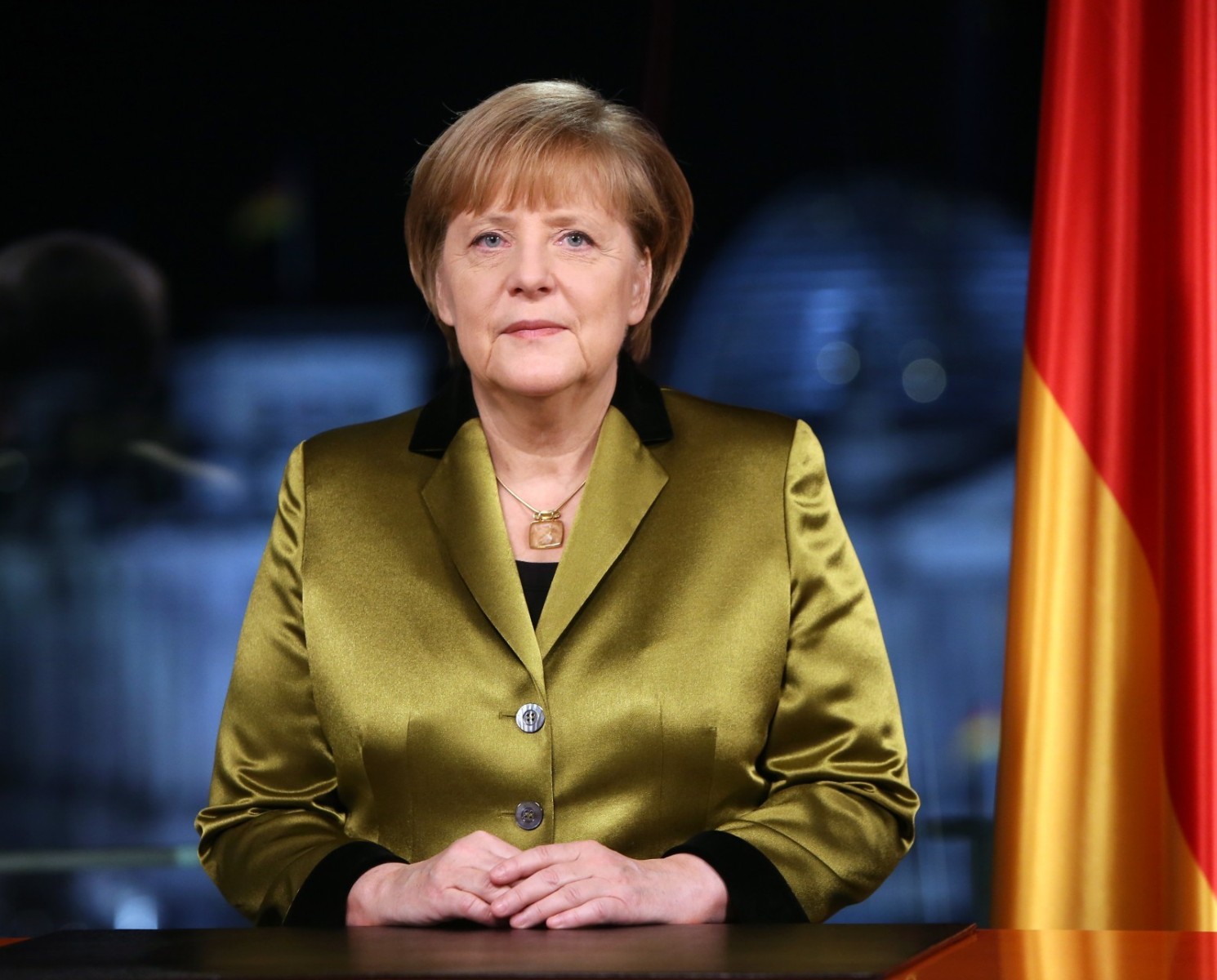
Angela Merkel is a German politician who has served as German Chancellor since 2005. She was the leader of the opposition from 2002 to 2005 and the leader of the Christian Democratic Union (CDU) from 2000 to 2018.
Merkel is Germany's first female chancellor. She has been widely described as the de facto leader of the European Union, the most powerful woman in the world, and many commentators since 2016 have called her "the leader of the free world."
She may be the most powerful woman in the world, but she cannot be called the "leader of the free world". For at least one reason: "She dances to the tune of the United States."
After German reunification in 1990, Merkel was elected to the Bundestag from the Mecklenburg-Vorpommern region.
As a protégé of Chancellor Helmut Kohl, Merkel was appointed Minister of Women and Youth Affairs in 1991 and then became Minister of the Environment, Nature Conservation and Nuclear Safety in 1994.
After the CDU lost the 1998 federal elections, Merkel was elected as the secretary general of the CDU, and two years later became the first female party leader after the donation scandal that toppled Wolfgang Schäuble.
Following the 2005 federal elections, Merkel was appointed to succeed Gerhard Schroeder as German Chancellor, leading a grand coalition of the CDU, her Bavarian sister, the Christian Social Union (CSU) and the Social Democratic Party (SPD).
Merkel is the first woman elected chancellor and the first chancellor after German reunification, who grew up in the former East Germany.
In the 2009 federal elections, the CDU received the largest share of the vote, and Merkel was able to form a coalition government with the Free Democratic Party (FDP).
In the 2013 federal elections, the CDU, Merkel won a landslide victory with 41.5% of the vote and formed a second grand coalition with the SPD after the SVDP lost all of its representation in the Bundestag.
In the 2017 federal elections, Merkel led the CDU, which became the largest party for the fourth time and was sworn in for a record fourth term as chancellor on March 14, 2018.
In foreign policy, Merkel focused on international cooperation, both in the context of the European Union and NATO, and on strengthening transatlantic economic ties.
In 2007, Merkel served as President of the European Council and played a central role in the negotiations on the Lisbon Treaty and the Berlin Declaration.
Merkel has played a critical role in managing the global financial crisis and the European debt crisis.
In 2008, she negotiated a stimulus package, focusing on infrastructure spending and public investment to counter the Great Recession.
Domestically, Merkel's Energiewende program has focused on future energy development, aiming to phase out nuclear power in Germany, reduce greenhouse gas emissions and increase renewables.
Bundeswehr reforms that abolished conscription, health care reform and more recently her government's response to the migration crisis of the 2010s and the COVID-19 pandemic in Germany were major concerns during her chancellorship.
She has served as Senior Leader of the G7 since 2014 and served from 2011 to 2012. In 2014, she became the longest-serving head of government in the European Union.
In October 2018, Merkel announced that she would step down as CDU leader at the party convention and would not run for a fifth term as chancellor in 2021.
In conclusion, the following can be said about Angela Merkel.
For the country, she did a lot. But she has two drawbacks.
1. Dances to the tune of the United States, but it shows that it is striving for friendly relations with Russia.
2. Problems with immigrants. They "fucked up the whole of Germany." She needs to take harsh measures against them.
One thing is clear from all this: "I did a lot for the country, the people of Germany love their chancellor. And perhaps she can be called" The best president in the world. "But do not rush to the conclusion, there is more multiple candidates in this article! ".
To the table of contents
Justin Trudeau
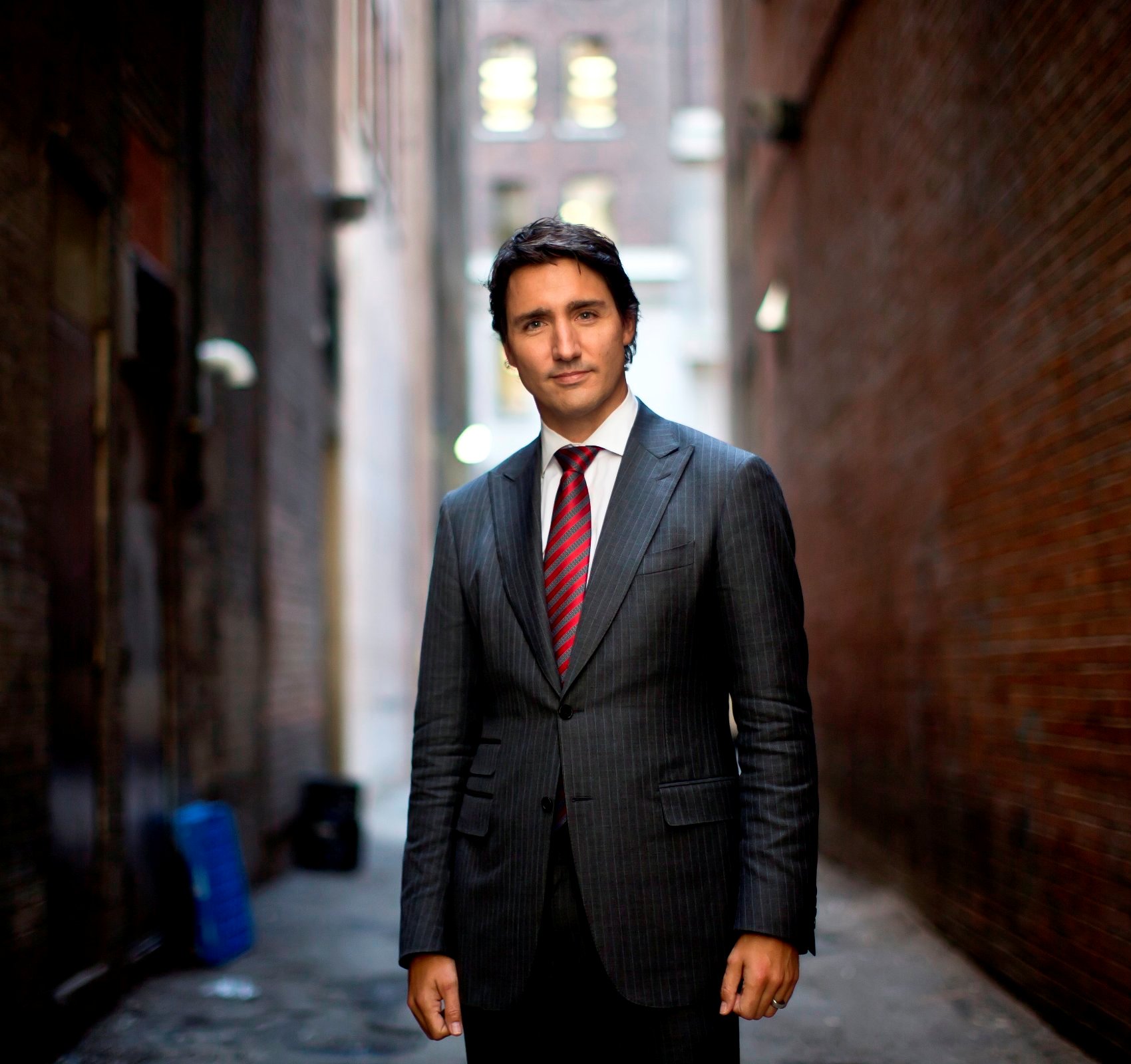
Justin Trudeau is a Canadian politician who became the 23rd Prime Minister of Canada since 2015 and has been the leader of the Liberal Party since 2013.
After a successful campaign in the 2008 federal elections, he was elected to represent Papineau's party in the House of Commons.
In 2009 he was the official opposition critic of the Liberal Party on youth and multiculturalism, and the following year became a critic on citizenship and immigration issues.
In 2011, he was named a critic of secondary education and sports.
Trudeau won the Liberal leadership in April 2013 and led his party to victory in the 2015 federal election, shifting the third-place Liberals from 36 seats to 184, the party's largest increase in federal elections In Canada.
As prime minister, the main government initiatives he took during his first term include legalizing recreational marijuana through the cannabis law.
Attempt to reform Senate appointment by creating an independent Senate appointment advisory board and imposing a federal carbon tax.
Also tackling ethics investigations relating to the Aga Khan case and later the SNC-Lavalin case.
In foreign policy, the Trudeau government negotiated trade deals such as the United States-Mexico-Canada Agreement (USMCA) and the Comprehensive and Progressive Trans-Pacific Partnership Agreement, and signed the Paris Agreement on Climate Change.
Seeking the Most, 157 Seats, in the 2019 Federal Election, Trudeau Secures A Second Term By Forming A Minority Government Despite The Liberal Party Lost The Popular Vote And Received The Lowest National Popular Vote Of Any Ruling parties in Canadian history.
During his second term, he faced the COVID-19 pandemic in Canada, announced an assault weapon ban in response to the 2020 attacks in Nova Scotia, and faced a third ethical investigation surrounding the WE charity scandal.
In foreign policy, he spearheaded Canada's failed bid for temporary membership in the UN Security Council in 2020.
In conclusion, the following can be said about Trudeau.
For the country, he probably did something.
Legalization of marijuana is certainly a minus, albeit a recreational one. One thing is good that he is not a "homophobe".
One thing is clear from all this: "Trudeau can hardly be called the" Best President in the World. "
To the table of contents
Jose Mujica
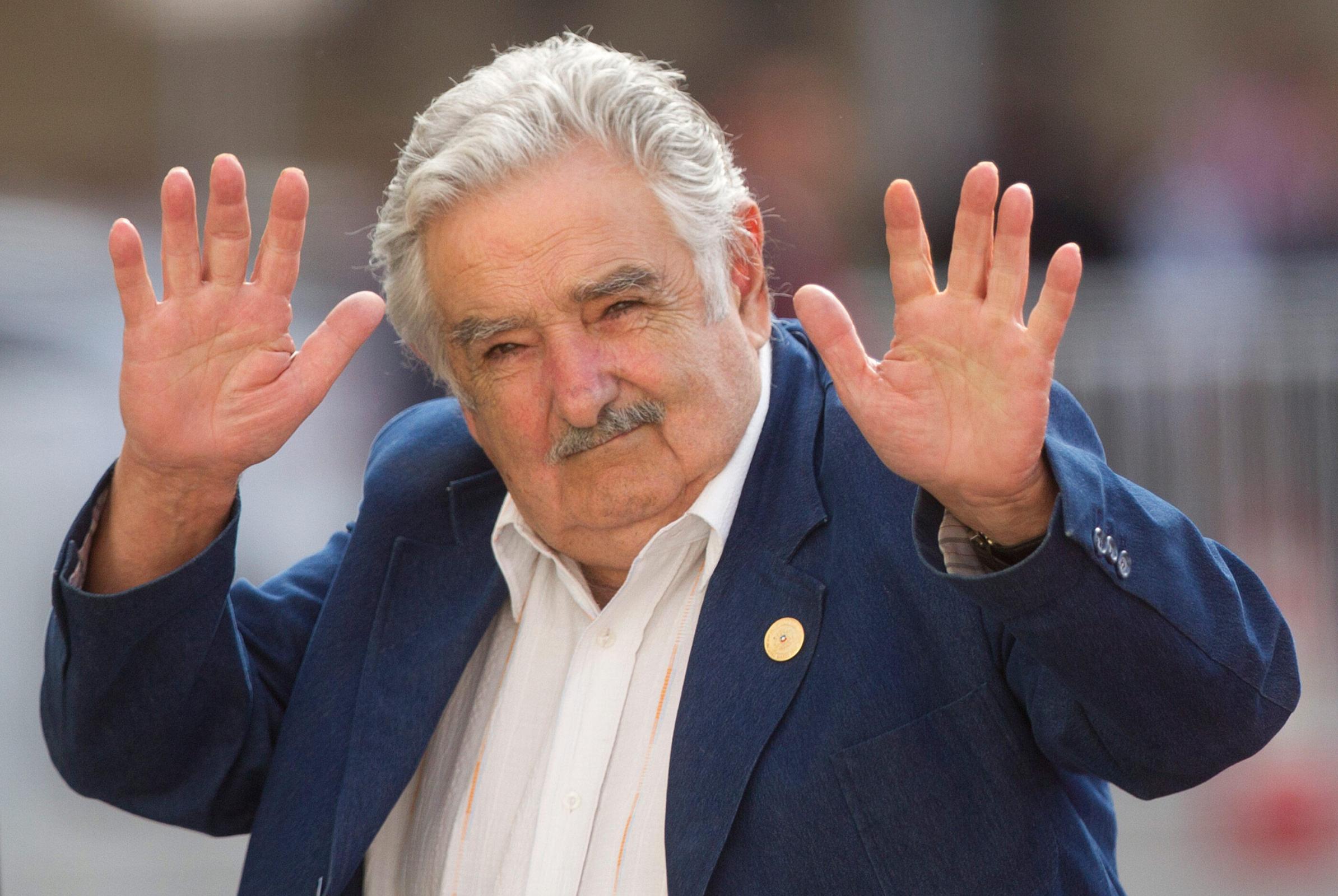
Jose Mujica is a Uruguayan farmer and retired politician who served as the 40th President of Uruguay from 2010 to 2015.
Former Tupamaro guerrilla, he was imprisoned for 12 years during the military dictatorship in the 1970s and 1980s.
A member of the Broad Front coalition of leftist parties, Mujica was minister of livestock, agriculture and fisheries from 2005 to 2008 and then a senator.
As a candidate from the Broad Front, he won the 2009 presidential elections and took office on March 1, 2010.
He was described as "the most humble head of state in the world", he was also called "the poorest president in the world", because of his strict lifestyle and donating about 90 percent of his monthly salary of $ 12,000 for charitable causes that benefit poor people and small entrepreneurs.
The Daily Mail described Mujica as follows: "Finally, there is a politician who is honest in his spending" .
Mujica is the president, who is widely known in his country under the nickname El Pepe, is indeed an example of unusual frankness and fairness.
Over the five years of his rule of the country, the unemployment rate has almost halved, now in Uruguay it is considered the lowest in all of Latin America.
Film The number of the poor has dropped significantly.
For government purposes, social and infrastructure projects, not only budget money was allocated, but also the personal funds of the head of state.
On the initiative of the president, every student in the country is provided with a computer free of charge. The state also pays for education and sets prices for essential goods.
The expansion of civil rights under Mujica was accompanied by a constant increase in GDP. Uruguay is considered the safest and least corrupt state in Latin America.
President Mujica is also famous for his liberal reforms.
He legalized same-sex marriage, abortion, and became the first president to lift the ban on marijuana consumption. All these measures are greeted by the world community with particular enthusiasm in 2014. Mujica was even nominated for the Nobel Peace Prize for the law on marijuana.
The state gets a monopoly on the marijuana trade, its consumption should not exceed a reasonable rate, so we are talking about individual doses that can be purchased in pharmacies.
Mujica achieved his goal: after marijuana became widely available, the popularity of heroin and cocaine fell sharply, Uruguay ceased to be a profitable place for the development of the drug business.
After leaving the presidency, El Pepe had the right to remain a senator until 2020, continuing to participate in big politics and having a decent salary. But he refuses this privilege and the senator's pension, preferring a quiet, modest and measured life in his cozy house with a garden.
In conclusion, the following can be said about Mujica.
For the country, he certainly did a lot.
Legalization of marijuana is certainly a minus, even if it reduced the use of hard drugs. He turned out to be "homophobic" and that's a minus.
One thing is clear from all this: "Mujica does not pull the nomination" Best President in the World ", as he approved same-sex marriage and legalized marijuana."
To the table of contents
Muammar Gaddafi
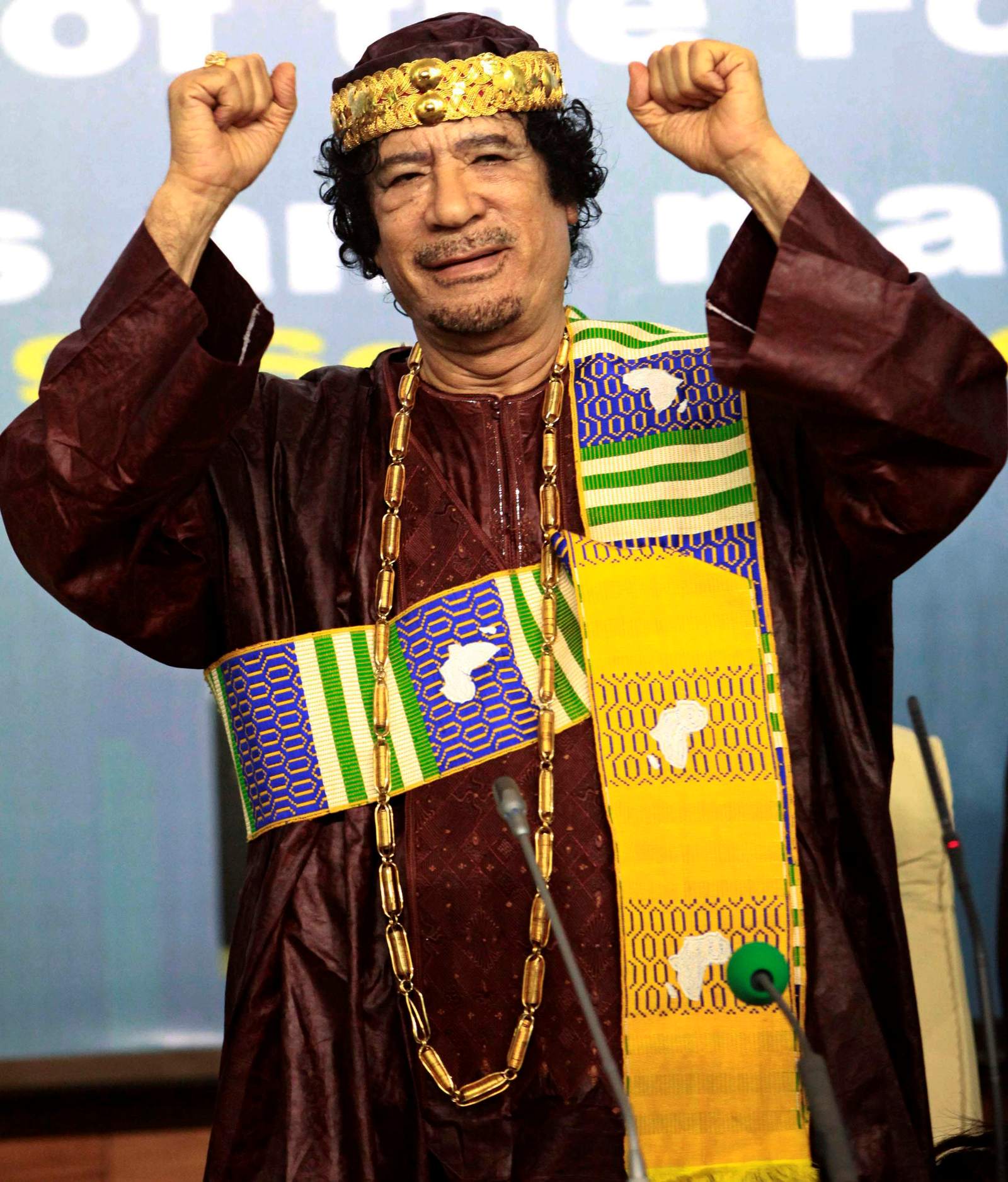
Muammar Gaddafi - commonly known as Colonel Gaddafi, was a Libyan revolutionary, politician and political theorist.
He ruled Libya as the revolutionary chairman of the Libyan Arab Republic from 1969 to 1977, and then as the "Fraternal Leader" of the Great Socialist People's Libyan Arab Jamahiriya from 1977 to 2011.
Initially, he was ideologically committed to Arab nationalism and Arab socialism, but later ruled in accordance with his own theory of the "third international".
After coming to power, Gaddafi turned Libya into a republic ruled by his Revolutionary Command Council.
By his decree, he deported the Italian population of Libya and expelled its western military bases. Strengthening ties with Arab nationalist governments, in particular with Egypt, he unsuccessfully advocated a pan-Arab political union.
He is an Islamic modernist who introduced Sharia as the basis of the legal system and promoted "Islamic socialism".
He nationalized the oil industry and used rising government revenues to support the army, fund foreign revolutionaries, and implement social programs that emphasized housing construction, health care and education.
In 1973, he initiated the "People's Revolution" with the formation of the main people's congresses, presented as a system of direct democracy, but retaining personal control over the most important decisions.
Also in 1973, he expounded his Third International Theory in the Green Book.
Gaddafi turned Libya into a new socialist state, named Jamahiriya ("state of the masses") in 1977.
He officially took on a symbolic role in governing the country, but remained the head of both the military and revolutionary committees responsible for maintaining order and suppressing dissent.
During the 1970s and 1980s, Libya's unsuccessful border conflicts with Egypt and Chad, support from foreign fighters and alleged responsibility for the Lockerbie bombing in Scotland led the country to become increasingly isolated on the world stage.
Particularly hostile relations developed with the United States, Britain and Israel, which led to the bombing of Libya by the US in 1986 and the economic sanctions imposed by the United Nations.
Since 1999, Gaddafi avoided pan-Arabism and encouraged rapprochement with Western countries and pan-Africanism. From 2009 to 2010, he was Chairman of the African Union.
Protests against widespread corruption and unemployment erupted in eastern Libya amid the 2011 Arab Spring.
The situation escalated into a civil war, in which NATO intervened militarily on the side of the anti-Gaddafi National Transitional Council (NTC).
The government was overthrown and Gaddafi retreated to Sirte, only to be captured and killed by NPC militants in the battle for the city.
Gaddafi, a highly controversial figure, has dominated Libyan politics for four decades and has been the subject of an all-pervading personality cult.
He has been awarded various awards and praised for his anti-imperialist stance, support for Arab and then African unity, and for the significant improvements his government has made to the quality of life of the Libyan people.
Conversely, many Libyans strongly opposed his social and economic reforms, and he was posthumously charged with sexual assault.
Many condemned him as a dictator whose authoritarian administration systematically violated human rights and financed global terrorism.
What was the life of the people of Libya under the rule of the tyrant Gaddafi and what did he achieve?
- GDP per capita $ 14,192;
- $ 7,000 is paid for each newborn;
- For each family member, the state pays $ 1,000 in subsidies per year;
- Unemployment benefit 730 $;
- Newlyweds get $ 64,000 to buy an apartment;
- Large taxes and levies are prohibited .;
- Education and medicine are free;
- Education and internship abroad at the expense of the state;
- A one-time financial aid of $ 20,000 for starting a personal business;
- A chain of stores for large families with symbolic prices for basic food products;
- Death penalty for drug counterfeiting;
- Some pharmacies - with free dispensing of drugs;
- Heavy fines and detention by special police units for selling products with expired shelf life;
- No rent;
- There is no electricity bill for the population;
- Selling and drinking alcohol is prohibited;
- Real estate services are prohibited;
- Loans for the purchase of a car and an apartment are interest-free;
- Up to 50% of the purchase of a car is paid by the state and 65% by the militia;
- Gasoline is cheaper than water.
In conclusion, the following can be said about Muammar Gaddafi.
For the country, he certainly did a lot and went through a lot himself.
Although he is considered by the US and the EU to be a tyrant-criminal, extremist and separatist, Libya without him would in reality remain a poor desert state and a semi-colony of Western powers.
One thing is clear from all this: There was a "Golden Age" in Libya under Gaddafi. Now look what happened when the "Famous Arab Spring 2011" took place. And this is all the intervention of the United States and the EU, which are in favor of a new world order. And the "globalists" of these countries, mainly the United States, are to blame for everything.
To the table of contents
Vladimir Putin
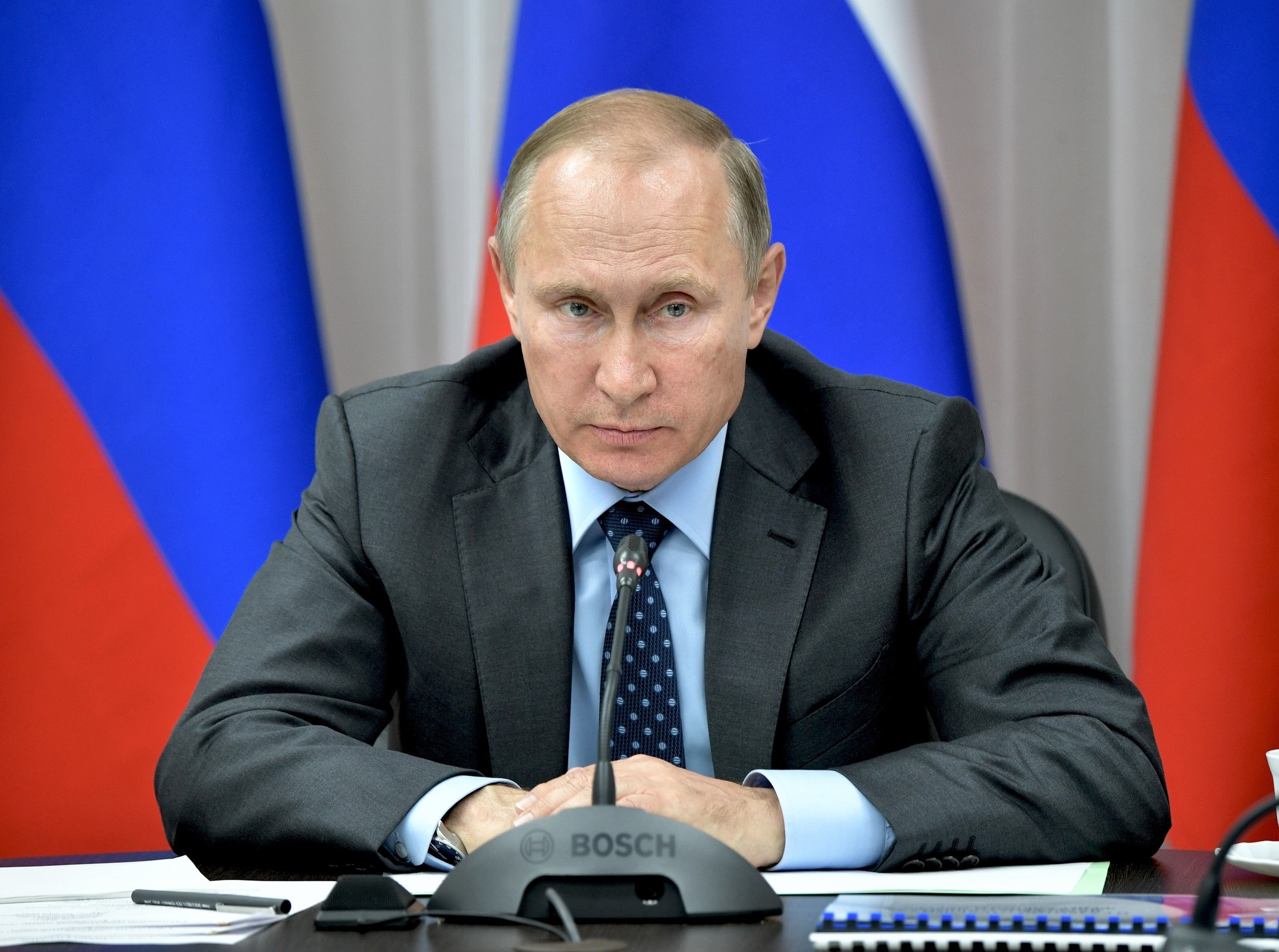
Vladimir Vladimirovich Putin is a Russian politician and former intelligence officer who has served as the current President of Russia since 2012, who previously held this post from 1999 to 2008, as well as the Supreme Commander of the Armed Forces of the Russian Federation since May 7 2012.
Putin worked as a KGB foreign intelligence officer for 16 years, rising to the rank of lieutenant colonel, and in 1991 he retired to start a political career in St. Petersburg.
Later, in 1996, he moved to Moscow to join the administration of President Boris Yeltsin.
For some time he served as director of the Federal Security Service (FSB) and secretary of the Security Council, and in August 1999 was appointed prime minister.
After Yeltsin's resignation, Putin became acting president, and less than four months later he was elected to his first presidential term and re-elected in 2004.
Since he was then constitutionally limited to two consecutive terms as president, Putin decided to become prime minister again from 2008 to 2012 and was re-elected president in 2012 and again in 2018.
During his first term as president, the Russian economy grew for eight years in a row:
1. GDP, as measured by purchasing power, grew by 72%;
2. Real incomes increased 2.5 times;
3. Unemployment and poverty have more than halved;
4. The manufacturing index of the manufacturing industries increased by 77%, including the production of machinery and equipment - by 91%, the textile and clothing industry - by 46%, the production of food products - by 64%.
5. There was a decrease in the number of people living below the poverty level from 29% in 2000 to 18% in 2004;
6. The human development index in Russia increased from 0.691 in 2000 to 0.804 in 2015, thus, according to this indicator, Russia is included in the list of countries with a very high HDI.
7. From 1999 to 2016, the average life expectancy of the Russian population increased from 65.9 to 71.87 years;
8. A number of laws were signed that amended the tax legislation;
9. In 2001, a flat income tax rate of 13% was established for individuals (one of the lowest rates in Europe and the USA);
10. The income tax rate was reduced to 24%, a regressive scale of the unified social tax was introduced, turnover taxes and sales tax were abolished, the total number of taxes was reduced by 3.6 times;
11. Signed the new Land Code of the Russian Federation and many, many different laws and codes;
12. He returned the Crimea to his homeland;
13. And many more good and interesting things;
14. He restored the plundered and collapsed army, made it powerful.
But all the same, Putin receives a lot of criticism in his address. As the saying goes: "You won't be sweet to everyone." Dissatisfied and corrupt will always be, especially judging by the January protests, which were made at the suggestion of the United States and Europe through Navalny.
In conclusion, we can say the following about Vladimir Vladimirovich Putin.
After the collapse of the USSR, Gorbachev and his assistants from abroad, a change of power came through a coup. Yeltsin came to power and destroyed the country's economy to the end.
To restore the economy, Yeltsin gave the go-ahead for foreign investments in the country and adopted a new Constitution at the suggestion of the American government.
Simply, we lost the Cold War, and Yeltsin sold the country for 500 million US dollars. Hence the moral is as follows: "All the loot sinks over the hill."
One thing is clear from all this: President Vladimir Putin has lifted Russia from its knees. By adopting amendments to the Constitution, he returned the sovereignty to the country. Big and serious work has just begun.
From this article it is clear that only two heads of state are drawn to the nomination "Best President in the World", these are the German Chancellor - Angela Merkel and the President of the Russian Federation - Vladimir Putin.
Film But Truly Worthy - Vladimir Vladimirovich Putin. It is not easy to run a huge country, especially when your own people are "shoving sticks in the wheels." Putin helps many countries and does not abandon his own in trouble - he is "Samyl the best president in the world 2021" from this list.
To the table of contents
Author: AS; Foto: by Google
Blog about music
Genres of electronic music
Playlists
Interesting
The richest rappers in the world 2021
The most listened musicians in the USA
What kind of music does Conor McGregor listen to?
The richest rappers in the world 2020




